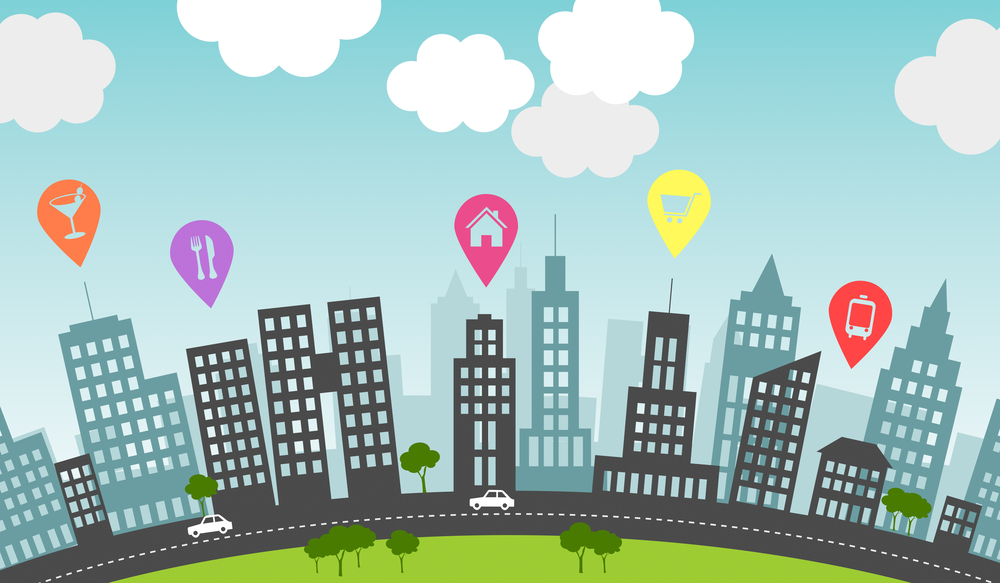The Local Phone Number in the Mobile Era: Engaging Local Communities in your Marketing Strategies

According to business writers John A. Quelch and Katherine E. Jocz, "all business is local." As they argue in their book by the same name, the more global economics and commerce become, the more important it is for businesses to be minutely localized in their marketing, advertising and planning. From Starbucks to IBM, they argue, the most successful global brands are also the most successful local brands. As businesses of all sizes come to the same realization as the global corporate juggernauts regarding the importance of marketing at the neighborhood level, the conventional wisdom that toll-free numbers are always better is being challenged.
The Dwindling Relevance of Toll-Free Numbers
The proliferation of toll-free numbers as the status quo for businesses began with a very basic appeal to the wallets of customers. Toll-free numbers encouraged customers to contact businesses by letting them call without incurring charges in a time when arbitrary and expensive long-distance fees were the norm in landline-based telephony.
Now, nearly 40 percent of all households don't even have a landline, and more than 100 percent of the American population has a mobile phone, if you factor in those with more than one cell phone. Mobile phones — and VoIP networks, as well — operate on flat, minutes-based plans, meaning it costs exactly the same to call a "toll-free" number as it does to call a local number — or any number at all. The most basic reason for having a toll-free number is quickly disappearing.
Call Forwarding
One of the primary arguments against having a local number has historically been that they shackle businesses to a single line. With call-forwarding services, however, businesses can turn their local number into a virtual call center, routing incoming calls to any number, group of numbers, a messaging service or mobile phone, essentially guaranteeing that callers won't reach a busy signal or a voicemail.
Engaging the Community with a Local Number
 So, as call forwarding and minutes-based mobile plans negate two of the primary arguments for having a toll-free number, businesses are less hesitant to reach for the many benefits that come with having a local number. Conventional wisdom dictates that toll-free numbers can make small businesses appear more professional.
So, as call forwarding and minutes-based mobile plans negate two of the primary arguments for having a toll-free number, businesses are less hesitant to reach for the many benefits that come with having a local number. Conventional wisdom dictates that toll-free numbers can make small businesses appear more professional.
The reality is, however, that they can also create the perception that the business behind the 800 number is a distant, global, mega-corporation, turning off customers who want their individual patronage to matter. Local numbers — even if that number is attached to the local branch of a multi-billion dollar corporation like Starbucks — give customers the impression that they're supporting a neighborhood business. On a purely strategic level, local numbers can be used to track pay-per-click metrics, conversion rates and other marketing analytics, boosting advertising effectiveness.
Be Warned
There are a few drawbacks to consider, however, before committing to a local number. Studies show that toll-free numbers — specifically vanity numbers — are easier to remember, especially when advertised on radio and television. Local numbers adhere to relatively small geographical areas, meaning that even small changes in location would require the addition of multiple numbers. With multiple numbers, multiple corresponding advertisement runs would need to be created. With a toll-free number, one ad can circulate nationwide.
As the global economy and Internet connectivity shrink the world more with each passing year, a focus on local, community marketing becomes more and more important. Toll-free numbers are still useful, but their core purpose — free person-to-business calling — is a dying concept in the mobile era — and call forwarding makes one number as versatile as the next.
With these new realities in place, businesses of all sizes are fueling their neighborhood marketing strategies with the implementation of local numbers. Local numbers provide familiarity and create the perception that the number is maintained by a community-based business. Marketing is about altering perception, and local numbers go a long way to making customers perceive the business behind the number as an entity they want to support.
Area Code
At AreaCode.org, you'll find helpful information on area codes, including area code location. Other phone area codes may be found using AreaCode.org's area code locator. Use the search function for area code look up. Toll Free Number with no setup fees. Toll Free Number with lots of great features.
Area Codes
AreaCode.org is an area code directory with helpful information on the various United States area codes, area code listing, and other area code phone details. AreaCode.org also list international area codes within the North American Numbering Plan. We offer the best UK telephone number and manage many smart features online. UK Telephone Number made simple with TollFreeForwarding.com.
Area Code Finder
Find area codes by using AreaCode.org's area code finder. AreaCode.org provides an area codes map of area codes United States. Area zip codes are different than area codes for calling.
Area Code Lookup
AreaCode.org is an excellent resource for area code lookup and area codes phone information. Here you'll find an area codes list of area codes within the United States, plus Canada area codes.
Area Code Map
For a full list of area codes, visit AreaCode.org. It provides USA area codes and an area code map. Mexico area code is not included in the North American Numbering Plan.
Telephone Area Codes
AreaCode.org is a resource of North American telephone area codes. Beyond area code listings, relevant information about each area code is detailed. You can also search area codes by state, and within the NANP, find country area codes.
Area Codes Locator
The area codes locator shows the coverage area for each phone number area code. Area code locations are also listed by city next to the area code maps on this page.
Area Code Search
Find area codes using the area code search function on AreaCode.org. With area codes search, you can find city area codes in the United States, Canada and elsewhere.
Area Code Location
AreaCode.org shows you the area code location covered by each area code; for example, the LA area code coverage area in Los Angeles. State area codes may be found using AreaCode.org, but Mexico area codes are not included.
Telephone Area Code
The telephone area code is dialed before the local number. For area codes by city, search AreaCode.org. Area codes telephone differ from region to region, and in some places the area code must be dialed even when calling locally within that region. Find out more with area code decoder.



